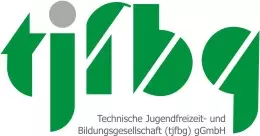
Social and Employment
Place
Berlin, Germany
Sponsor
Angela Mentzel
Grant(s)
25,000 € to the Selection Committee at 2005/05/31
Project leader
Technischer Jugendfreizeit und Bildungsverein
« The experience I have gained in professional integration of disabled people shows that this project meets a real need for advice and practical experience in the field of new media. »
Angela Mentzel
Whether in terms of being able to use a computer and the related tools (browser, email, etc.), or running documentary searches on the Internet...there is no doubt that new information and communication technologies (ICTs) have become an integral part of professional life. This is even more true for those with a disability. This reality lies behind the creation of the "Barrierefrei kommunizieren !" national skills and benchmark centre, established in 2004 in Berlin and Bonn on the initiative of Technischer Jugendfreizeit-und Bildungsverein (TJFBV).
Since 1991, the association has set itself the objective of combining practical training and sociopedagogical work for children, teenagers and the disabled. This association now has an established reputation thanks to numerous model projects such as "JOB Werkstatt Mädchen", a technical training workshop for girls and "JugendTechnikSchule", a technical college for young people.
A training and applications hub
There are now in the region of 34 million disabled people in Europe, most of them enjoying very limited access to the new media. Hence TJFBV's idea to set up a centre providing training in new technologies and also serving as a forum for exchange where professionals and future employers can try out their specific tools. A hub of information, training and experimentation
Funded by the ministry of health and social security, European social funds and the employment agency, the "Barrierefrei kommunizieren !"demanded a total budget of 1.5 million euros for FY 2004-2007, most of which was devoted to personnel costs (ten staff).
The Veolia Foundation provided 25,000 euros in funding to cover the cost of the technology laboratory and, in particular, the computer workstations adapted to various disabilities, including lock-in syndrome, partial paralysis and blindness.The association is now equipped with software responding to the flutter of an eyelid, a mouse that can be attached to the user's forehead and transmits a laser signal to a tactile keyboard.

